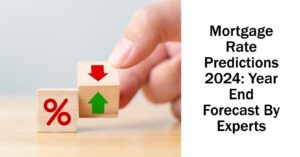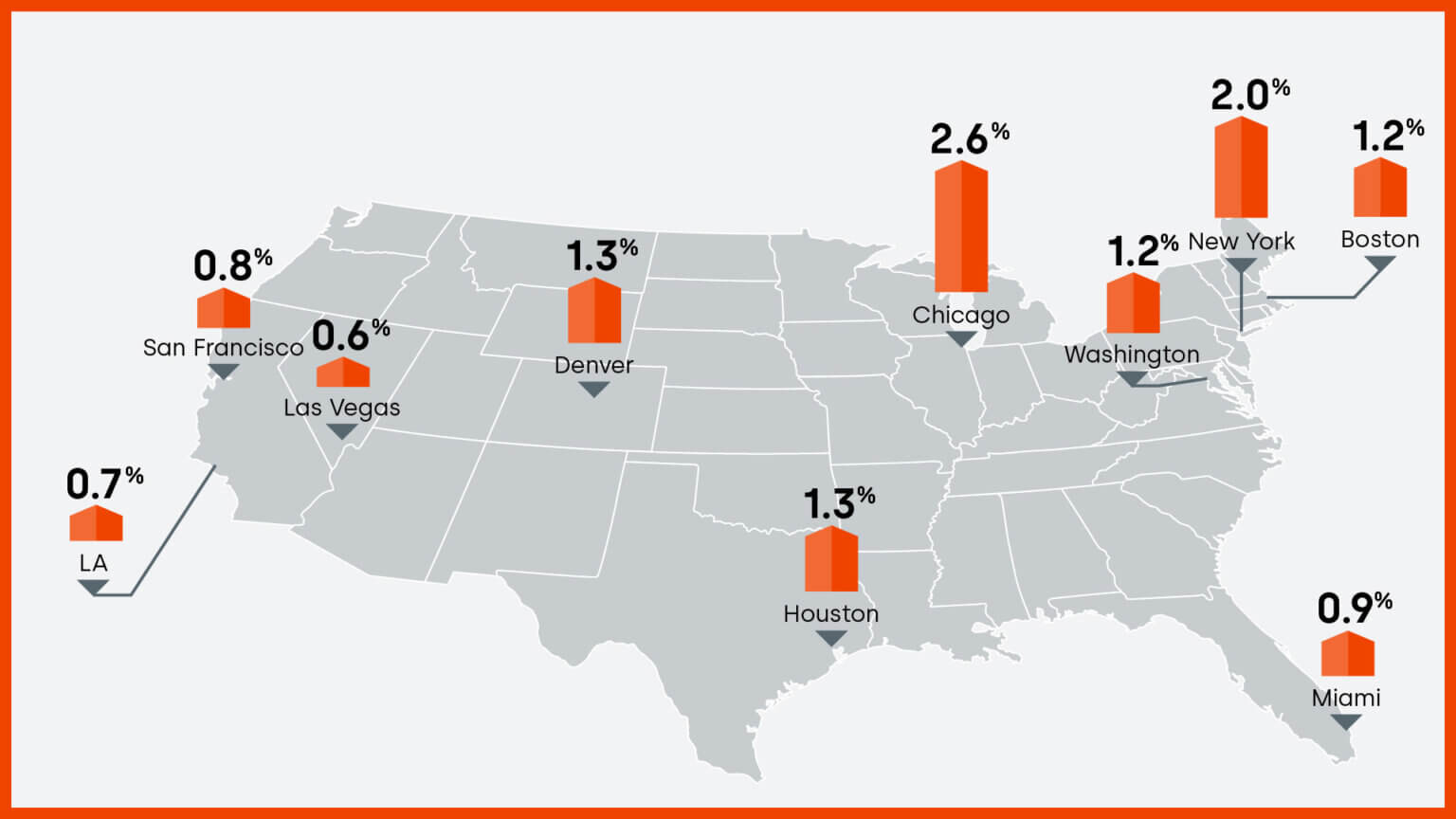For homebuyers who've been waiting for a significant drop in mortgage rates, the news might be a little disappointing. Experts are predicting that rates will likely hold steady above 6% throughout the rest of 2024. This means that the ultra-low rates that hovered around 3% in previous years are unlikely to make a comeback in the near future. The Federal Reserve's interest rate hikes and overall economic conditions are the primary drivers behind this trend.
Mortgage Rate Predictions for the End of 2024
Current Trends and Forecast
Mortgage rates, which had remained historically low during the pandemic, have spiked following the Federal Reserve's aggressive rate-hiking campaign. This increase led home sales to plunge to their lowest level since 1995 last year.
As of July 3, 2024, the 30-year fixed-rate mortgage stands at 6.95 percent according to Freddie Mac, up 0.09 from a week earlier and 0.14 from a year earlier. The 15-year fixed-rate mortgage is at 6.25 percent. Even as rates have come down slightly from the highs seen in April and early May, where average rates hovered over 7 percent, they remain substantially high.
Expert Predictions
Several major institutions have weighed in on their predictions for mortgage rates by the end of 2024:
- Fannie Mae and the National Association of Realtors (NAR) both expect the average 30-year mortgage rate to modestly lower to around 6.7 percent by the end of the year.
- The Mortgage Bankers Association is slightly more optimistic, forecasting the rate to be at 6.6 percent.
- Freddie Mac predicts that the rate will lower to 6.5 percent by the end of 2024.
Freddie Mac's June Economic, Housing, and Mortgage Market Outlook notes that “Mortgage rates have been volatile over the past month, but we expect rates to remain above 6.5 percent through the end of the year.”
The Federal Reserve's Influence
Market observers and homebuyers are eagerly waiting for the Federal Reserve to lower its key interest rate, a move that would eventually lead to lower mortgage rates. However, the Fed has so far been reluctant to make such a move as it remains vigilant about inflation. Lawrence Yun, NAR's chief economist, indicated that “if the spread between the 10-year Treasury bond yield and the 30-year mortgage rate narrows, then mortgage rates can decline even before the Federal Reserve's rate cut.” Yet, he warned that given the uncertain outlook for community and regional banks, the spread might not narrow.
Impact on Homebuyers
The elevated mortgage rates have significantly impacted homebuyers. “The mortgage payment for a typical home today is more than double that of homes purchased before 2020,” Yun noted. Nonetheless, some Americans are still buying homes despite stubbornly high mortgage rates and average home prices close to their pandemic record peaks.
Melissa Cohn, the regional vice president of William Raveis Mortgage, told Newsweek that the buyers in this market are often those who feel they have waited long enough and are ready to make a purchase. “We're just not going to wait anymore,” she said. Cohn also mentioned that some buyers believe that taking advantage of current real estate prices is wise because when mortgage rates eventually come down, real estate prices are likely to rise.
Looking Ahead
As we approach the end of 2024, the mortgage market remains in a state of flux. While forecasts suggest that rates will remain above the 6 percent mark, slight decreases to levels around 6.5 to 6.7 percent are anticipated. Homebuyers need to stay informed, evaluate their financial readiness, and consider both current rates and future market conditions before making decisions.
To sum up, while the forecast for mortgage rates points to a modest decline, it is unlikely that they will drop significantly by the end of 2024. Aspiring homeowners should prepare for a market where mortgage rates remain comparatively high, requiring careful financial planning and strategic decision-making.
ALSO READ:
- When Will Mortgage Rates Go Down to 3%: Predictions Reveal!
- Mortgage Rates Predictions for Next 2 Years
- Mortgage Rate Predictions for Next 5 Years
- Will Mortgage Rates Ever Be 3% Again: Future Outlook
- Summer 2024 Mortgage Rate Predictions for Home Buyers
- Will Mortgage Rates Ever Be 4% Again?
- Mortgage Rate Predictions for 2025: Expert Forecast












